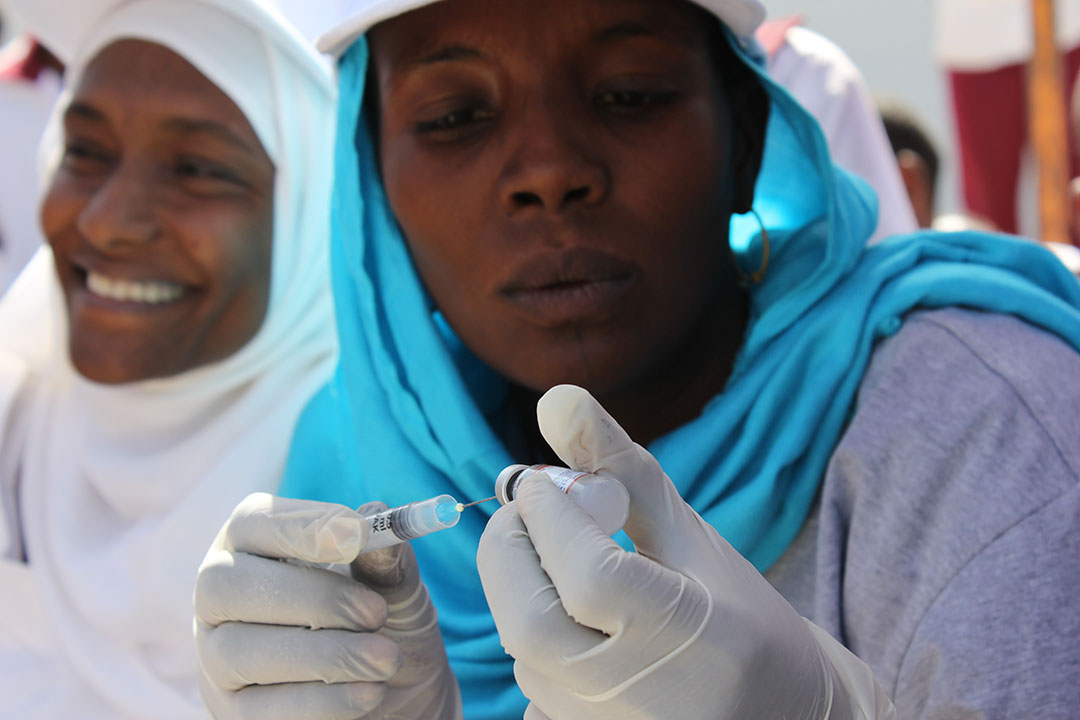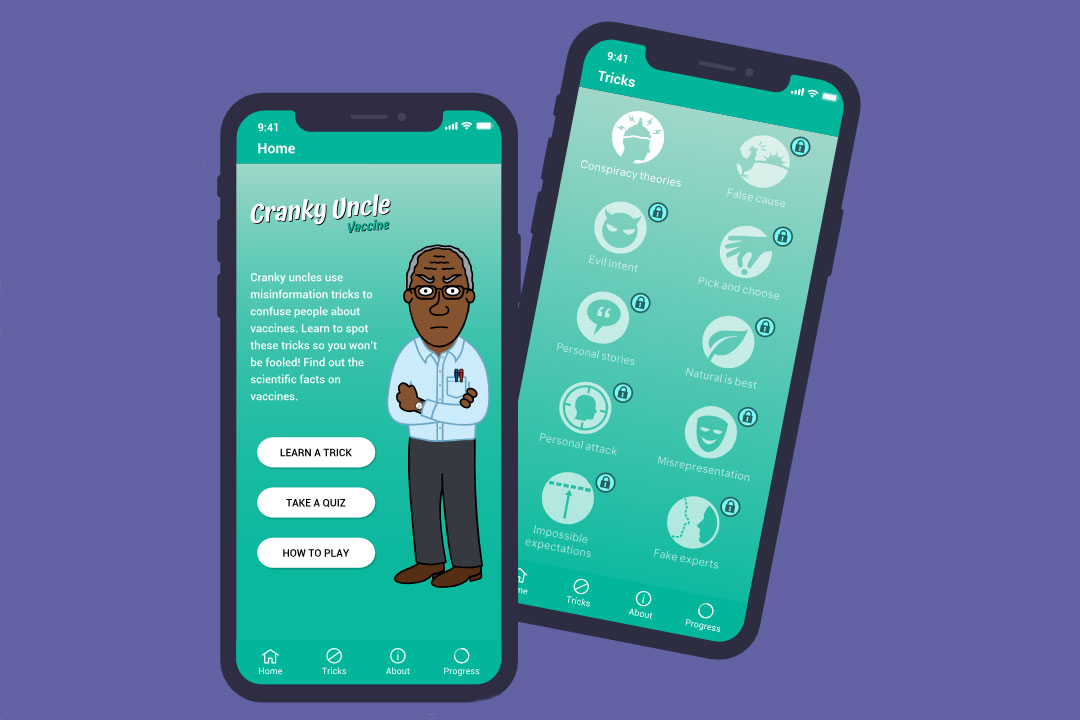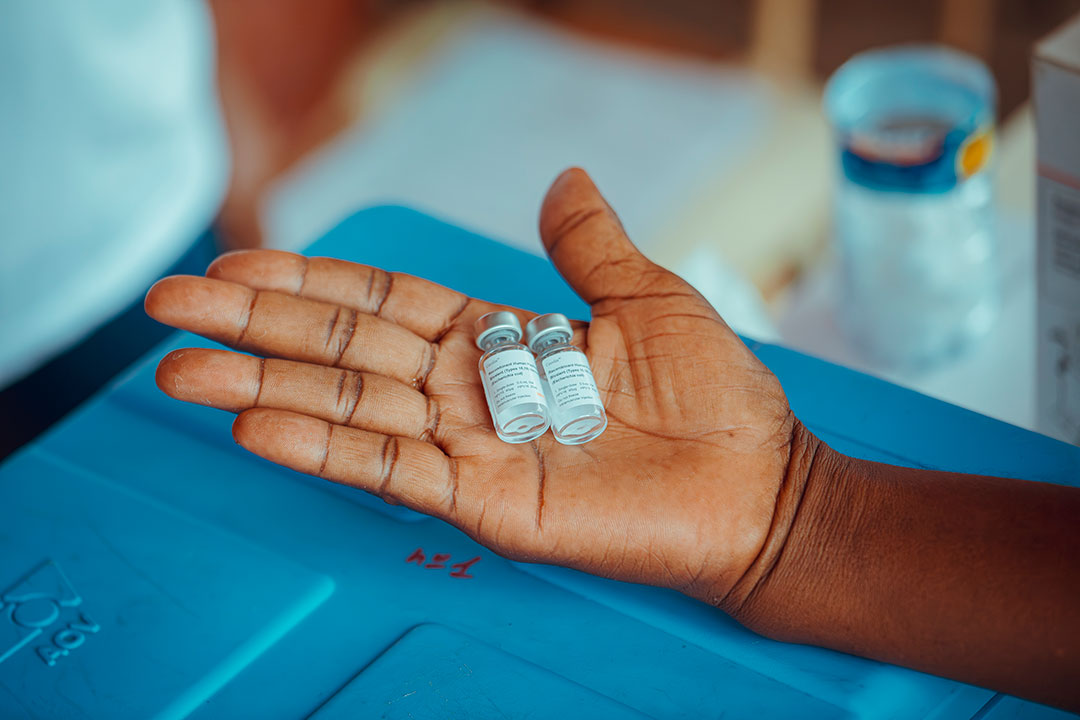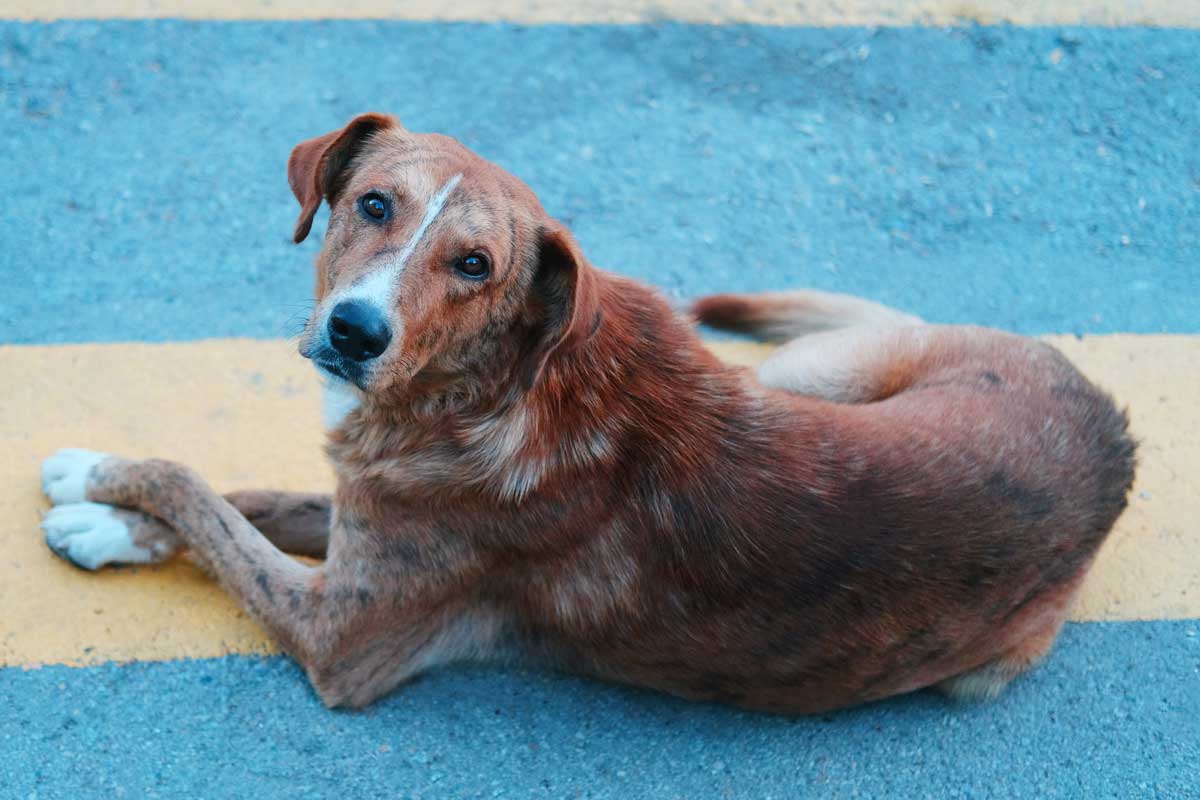Chad launches pneumococcal vaccine in historic multi-vaccine rollout
Chad pioneers simultaneous vaccine rollout for pneumococcal disease, malaria and rotavirus to combat top infectious killers of children under five.
- 13 November 2024
- 5 min read
- by Priya Joi

Chad has become the first Gavi-supported country to kick off an ambitious triple vaccine roll-out, launching routine immunisations for pneumococcal disease (pneumococcal conjugate vaccine, or PCV), malaria and rotavirus on 25 October 2024.
This initiative targets Chad’s high child mortality rates by addressing three leading infectious killers: pneumonia, malaria and diarrhoeal disease.
The integration of these three vaccines marks a major milestone in Chad’s fight against diseases of childhood, as pneumonia, diarrhoeal disease and malaria are leading causes of under-five mortality.
Pneumonia alone kills nearly 2,000 children globally each day, with ten countries in Asia and Africa having 60% of pneumonia deaths in children under five years. Chad is number five on that list, with 13,000 deaths per year. The country has one of the world’s highest under-five mortality rates (119 deaths per 1,000 live births), with pneumonia accounting for 23.3% of these deaths.
In 2025 the country aims to reach nearly 900,000 children in their first year of life with PCV and rotavirus vaccines. In addition, a PCV catch-up campaign, launching this month, will target more than 3 million children aged between one and five years. The vaccines are incredibly effective: at 60–70% routine coverage, the introduction of PCV in Chad is projected to prevent between 4,300 and 5,000 childhood deaths from pneumonia each year.
“This initiative is the poster child for exactly what countries should be doing to protect their children. It represents a giant leap forward towards Chad’s achievement of the Sustainable Development Goal for child survival by 2030.”
- Leith Greenslade, Coordinator, Every Breath Counts Coalition
Similarly, the rotavirus vaccine is expected to prevent approximately 2,500 to 2,900 deaths annually. Over 168,000 children aged between 6 and 15 months will receive the malaria vaccine – in 2023 the country recorded 1.75 million cases, of which over a third were in children under five years of age.
Launching three vaccines together alongside a catch-up campaign is a pioneering approach that maximises impact and efficiency. This is especially important in fragile settings like Chad, where limited resources and competing health care priorities often slow down vaccine roll-out.
“This initiative is the poster child for exactly what countries should be doing to protect their children. It represents a giant leap forward towards Chad’s achievement of the Sustainable Development Goal for child survival by 2030,” Leith Greenslade, Coordinator, Every Breath Counts Coalition, told VaccinesWork.
Greenslade adds: “We applaud the Government of Chad for a world’s first – the introduction of three vaccines targeting the leading infectious killers of children – pneumonia, diarrhoea and malaria. These three cause 42% of all child deaths in Chad and the new vaccines will save tens of thousands of children’s lives every year.”
1.2 million children saved since 2009
Since 2009, Gavi has supported the vaccination of 438 million children with PCV, helping to prevent an estimated 1.2 million deaths by the end of 2023. The roll-out of this vaccine in 64 countries is a feat of global health collaboration and innovation.
Pneumococcal vaccines are complex vaccines that would normally reach lower-income countries 10–15 years after their introduction in high-income countries.1 Building on the work of Nobel-prize winning economists, Gavi developed the concept of an Advance Market Commitment (AMC) for pneumococcal vaccines – a guarantee for manufacturers that if they made vaccines suitable for lower- and middle-income countries, donors would help cover the cost of purchasing them.
The very first AMC was for PCV, ensuring supply capacity to vaccinate more than half a billion children, accelerating the development of new vaccines that meet developing country needs, and encouraged low vaccine pricing to stimulate unprecedented demand for PCV in lower-income countries through a US$ 1.5 billion commitment by a consortium of donors.
The PCV AMC model influenced the development of similar mechanisms, such as the COVAX AMC, which distributed nearly 2 billion COVID-19 vaccines to lower-income countries.
Laying the foundation for increased routine vaccine coverage
Chad has been buffeted by numerous challenges in the past few years, including hunger, drought, conflict and an influx of displaced people from neighbouring countries.
Despite this, the country has been steadily strengthening its health care system, laying the foundation for introducing new vaccines. During the COVID-19 pandemic, as many countries saw their routine vaccination rates fall, Chad saw it increase. Its coverage of DTP3 (third dose of diphtheria, tetanus and pertussis-containing vaccine), a marker of basic vaccination reach, rose from 50% in 2019 to 58% in 2021. This further rose to 67% in 2023.
This success seems to have come from the country’s consistent commitment to improving various aspects of vaccine roll-out from investing in cold chain equipment to allocating funding to vaccine purchasing and supporting its supply and distribution chain.
At the start of the pandemic, Gavi supported the country’s Ministry of Health in recruiting 235 health workers (nurses and midwives) who were assigned to difficult areas state personnel did not work, but where the need for health care was urgent.
In addition, the Ministry of Health, with support from UNICEF and the Bill and Melinda Gates Foundation, developed an urban strategy for immunisation. Around 5,000 village chiefs and community health volunteers were trained in the Lake region and integrated communication plans were developed in seven provinces.
Chad’s commitment to this new vaccine roll-out includes substantial financial investment from its own budget. For 2024, the country’s co-financing obligation for PCV of US$ 125,644 amounts to 7% of its total immunisation funding commitment (US$ 1.775 million) for the year. Indeed, since 2016, Gavi-supported countries have been spending more on co-financing PCV than for any other vaccine – amounting to 46% of the total cofinancing obligations across all programmes in 2024.
“In the first decade of PCV support, up to 2020, more than 80% of Gavi-eligible countries introduced the vaccine. These were the countries with the stronger health systems, reflected in higher DTP3 coverage rates. That also means that the remaining ‘last mile’ countries like Chad are also the ones with fewer resources and more challenges to meet Gavi’s requirements for support,” says Veronica Denti, senior programme manager in Gavi’s vaccine programme team.
She adds: “To overcome these, Gavi combined three-in-one applications for PCV, rotavirus and PCV catch-up support to reduce administrative burden, and enable a single process to clear three launches. Extended Gavi partners mobilised additional technical assistance through tailored workshops for other fragile countries.” These fragile countries include Somalia and South Sudan, which are now preparing to introduce PCV with other routine vaccines in 2025.








